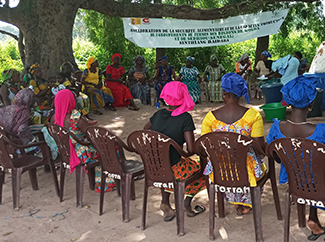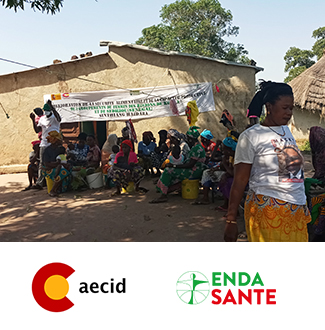consent_cookie
Duración: 1 year
Stores the user's cookie consent state
04-06-2021
Beyond the education provided in schools, awareness-raising and training is key in promoting community development. Both in aspects such as the nutritional value of the available foods as well as in regard to good habits regarding food and hygiene.
Based on this premise, several workshops on these topics have recently been organized in Sédhiou and Kolda, within the framework of the project 'Increasing food security and productive capacity of 160 women farmers in Sedhiou and Kolda', Senegal, co-financed by the Spanish Agency for International Development Cooperation (AECID), which Humana has been developing since 2019 with its local partner ENDA Santé.
These workshops were organized in various villages, based on highly participatory dynamics, based on questions and answers about daily experiences and habits at the nutritional, health and hygiene level.
More than 17,000 people involved
This project financed by AECID has 160 women directly involved; the total number of indirect participants exceeds 17,000. Its purpose is to strengthen the capacity to organize of small farmers, through their training, the improvement of their production groups and the promotion of associations.
For this, work is being done on the diversification of crops, the implementation of model fields to promote the learning of new horticultural techniques, more resilient and adapted to self-consumption. The aim is to improve the nutrition of the communities, with special attention to adolescents and those under five years of age, by incorporating vegetables grown by small farmers.
In addition, work is also being done to start up the so-called ‘community granaries for children’ for the storage of cereals, with which to prepare the baby food. With this, the loss of part of the crops is reduced and dependence on the market and the supply of each moment is stopped.
Pictures by Sintiang Aidara

